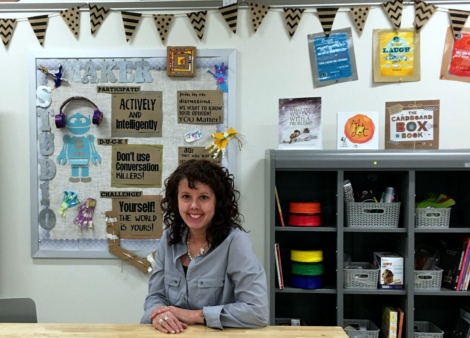Just Do It (Again): How Virtual and Video Game Labs Give Students the Freedom to Fail
Posted by SM Bruner on
Tracy Carlin shared this post with BrainPOP and I like how this quote explained the “Psychosocial Moratorium Principal.” Not sure what that is, or how games could help your students? Read on to what Traci has to say;
…The educational technology sector has seen potential in utilizing video games since their inception; the interest has only grown stronger and broader over time. The Education Game or Simulation category proved to be one of the most popular for entrants at this year’s CODiE Awards. If you look at the list of finalists, the popularity is no wonder. Game developers have created an unprecedented number of educational games for a bevy of diverse audiences, from small children to high schoolers and beyond the traditional K-12 system. For instance, the 2011 CODiE winner Hospitality and Tourism Interactive uses an interactive and online virtual world to encourage college students to explore career paths in the hospitality industry.
While controversy remains on to what extent educational and serious video games can teach children one thing is certain – in a video game you really learn how to fail. James Paul Gee called this the “Psychosocial Moratorium Principle” in his landmark book What Video Games Have to Teach Us About Learning and Literacy. Put simply, in a video game your consequences for failing are far lower than in a real world environment; thus the player feels more comfortable with taking risks and innovating in a virtual space. While “death” is a common trope in almost all games, most still save your progress with only some token punishment for whatever error caused your loss of life (such as a loss of experience, lowered health, or the loss of a certain amount of progress). Even the most major losses can be rectified by starting again. Pride is the only loss one might endure in the “real” world. If only students felt the same way when playing with a chemistry set or trying to practically apply Newton’s 3 Laws.
With a virtual lab, students could play with all the different disciplines in the STEM spectrum without fearing reprisal for failure. Meanwhile, parents and teachers would not have to fear injury as a result of a lab experiment. While in a real world classroom students would not be allowed to use a Bunsen burner alone, in a virtual environment the same students could mix any number of chemicals and see the results, both the desired and the undesirable…
Excerpted from the SIIA’s Digital Discourse Blogging the Software & Information Industries
Read the entire post: Just Do It (Again): How Virtual and Video Game Labs Give Students the Freedom to Fail.
Tracy Carlin is a Communications and Public Policy Intern at SIIA. She is also a first year graduate student at Georgetown University’s Communication, Culture and Technology program where she focuses on intersections in education, video games and gender.














